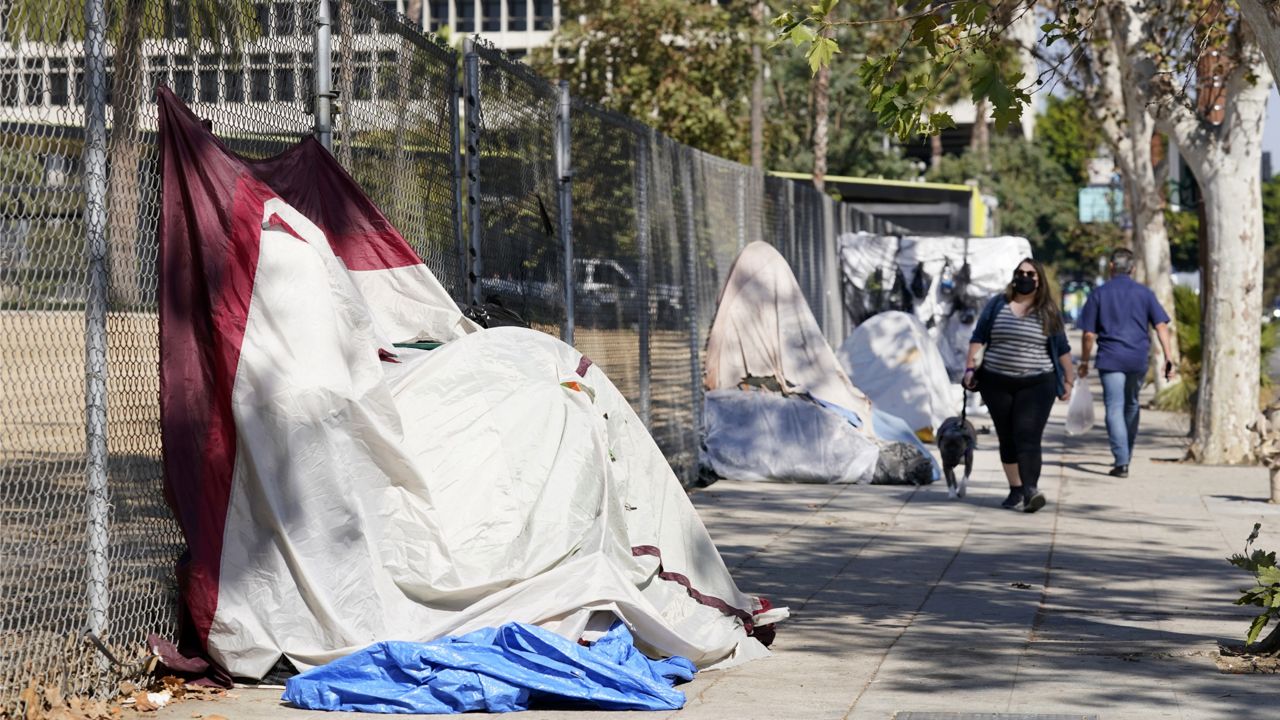LOS ANGELES (CNS) — The Los Angeles City Council Homeless and Poverty Committee Thursday delayed a vote on whether to advance a motion from Councilman Joe Buscaino to amend the city anti-camping law to include prohibiting any person who has already been offered shelter from lying, sleeping or sitting on any street, sidewalk or public right-of-way.
Despite the delay, several people called into the meeting, organized by the homeless advocacy and outreach group Ktown For All, to oppose the motion.
"I don't think this ordinance amendment is going to do anything to actually help unhoused people in Los Angeles. It will only increase the amount of citations, arrests and fees incurred by unhoused people, which is an incredible impediment to obtaining housing, employment and the resources that they need," said a caller who identified herself as Keira.
"If you think someone is service resistant, instead of trying to arrest people, why don't you stop and think about why they might be refusing your offer of shelter?"
Buscaino's motion — which was seconded by Councilman John Lee — to modify Municipal Code 41.18 was introduced before the City Council voted to amend the law with sweeping changes that go into effect next month. The full City Council, during its first reading of the new ordinance, declined to add Buscaino's motion as an amendment to the ordinance.
"If you've ever wondered why Los Angeles streets look much worse compared to other cities, it's because we haven't had commonsense rules in place. I am disappointed that the Council did not support my amendment to disallow urban camping after a person has been offered housing," Buscaino said on July 1.
The city's new anti-camping ordinance — which goes into effect on Sept. 3 — modifies Los Angeles' current anti-camping law in Municipal Code 41.18, to prohibit sitting, sleeping, lying, storing personal property or otherwise obstructing the public right of way in several areas of the city, including within two feet of any fire hydrant or fire plug; within five feet of any operational or utilizable entrance or exit; within 10 feet of a loading dock or driveway; in a manner that interferes with any activity for which the city has issued a permit or restricts accessible passage as required by the Americans with Disabilities Act; or anywhere within a street, including bike paths.
The ordinance also protects the public right-of-way within 500 feet of a "sensitive" facility, including schools, once the City Council passes a resolution to designate a specific area for enforcement, posts signage and gives notice of the date that the ordinance will be enforced.
The ordinance was approved by the City Council, with two council members — Councilman Mike Bonin and Councilwoman Nithya Raman — dissenting on July 28, and signed by Mayor Eric Garcetti the next day.
Assistant City Administrative Officer Yolanda Chavez told committee members that the office recommends a concentrated engagement process be implemented before enforcing the ordinance for encampments in areas that require a resolution and posted signage, which includes within 500 feet of schools, day care facilities, parks and libraries.
To start, the Street Engagement Strategy recommendations would serve as a pilot program at one site in each district until the CAO reports on the success of the pilot in February, and further action is taken to add engagement resources. If the City Council approves the pilot, enforcement of the ordinance — in locations requested by resolution from council members — would not occur outside of the location of the outreach pilot program in each district, Chavez said.



